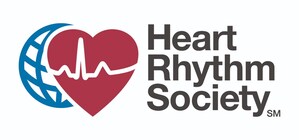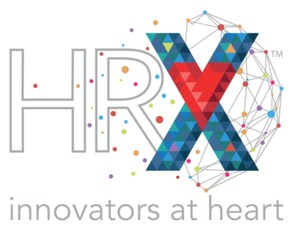New Expert Consensus Statement Attempts To Close The Gap On Guidance For Implantable Cardioverter Defibrillator (ICD) Therapy By Addressing Specific Patient Populations
At Heart Rhythm 2014, panel of experts from three prominent medical groups share recommendations for patient populations not well represented in current guidelines
SAN FRANCISCO, May 9, 2014 /PRNewswire/ -- The Heart Rhythm Society (HRS), American College of Cardiology (ACC) and American Heart Association (AHA) released Expert Consensus Statement on the Use of Implantable Cardioverter Defibrillator Therapy in Patients Who Are Not Included or Not Well Represented in Clinical Trials today at Heart Rhythm 2014, the Heart Rhythm Society's 35th Annual Scientific Sessions. The expert consensus statement provides first-of-its-kind guidance on ICD therapy for the management of patient populations who are not well represented in clinical trials and, as a result, not specifically included in existing guidelines.
ICDs have emerged as an important treatment option for patients who are at risk of sudden cardiac arrest, and are very effective for stopping life-threatening abnormal heart rhythms. However, while ICD therapy has been proven beneficial in many patient populations, there remain scenarios where clinicians are often asked to make decisions regarding ICD therapy for patients who fall outside of existing guidelines.
"Without exception, guidelines help clinicians make important decisions when it comes to ICD therapy; however, we must continue to refine our understanding of who benefits from ICD implantation in order to optimize patient care," said task force chair and lead author of the statement, Fred M. Kusumoto, MD, FHRS (chair), of the Mayo Clinic in Jacksonville, Florida. "Because guidelines are mainly determined by the outcomes of large clinical trials, smaller patient populations or unique circumstances are typically not provided with indications for treatment. This document will serve as a new guide for clinicians so that many more, if not all, patients receive the right treatment at the right time."
The members of the writing group performed a comprehensive literature search, and then developed a series of recommendations with an explanation of the reasoning and research used to make each recommendation. The writing group also evaluated the available data on important situations for which ICD therapy might be beneficial in selected populations.
The expert consensus statement includes specific recommendations for the following four situations:
1) Use of an ICD in patients with an abnormal troponin that is not due to a myocardial infarction (MI);
2) Use of an ICD within 40 days after a MI;
3) Use of an ICD within the first 90 days after revascularization; and
4) Use of an ICD in the first nine months after initial diagnosis of nonischemic cardiomyopathy.
Additionally, the writing group evaluated the utility of an atrial lead in a patient requiring ICD therapy without cardiac resynchronization therapy (CRT). The statement provides recommendations for specific scenarios where CRT is not indicated or not desired and a clinician must decide between a single- or dual-chamber ICD. Specific scenarios, including but not limited to those with AV block, Long QT syndrome, and persistent or permanent AF, are outlined with atrial lead use noted as either recommended, not recommended, can be useful, or may be considered.
The recommendations aim to help improve consistency and overall quality among hospitals and healthcare providers. Initiatives that standardize data elements and define best practices are critical for leveraging the benefits of ICD therapy to large populations. Future research should continue to evaluate the effectiveness and value of ICD therapy.
The consensus statement was developed in collaboration with and endorsed by the Heart Failure Society of America (HFSA) and the Society of Thoracic Surgeons (STS). It was endorsed by the European Heart Rhythm Association (EHRA), Asia Pacific Heart Rhythm Society (APHRS), and Latin American Society of Cardiac Pacing and Electrophysiology and will be published in the July 2014 edition of HeartRhythm.
Sessions details:
"Should an ICD Ever be Implanted Early After Myocardial Infarction, Revascularization, or Diagnosis of Cardiomyopathy?" [Friday, May 9, 2014, 12:15–1:15 p.m. PDT, Room 3011, Moscone West]
Heart Rhythm 2014 is the most comprehensive educational program for heart rhythm professionals, featuring more than 8,000 attendees, 250 educational sections and more than 130 exhibitors showcasing innovative products and services. The Heart Rhythm Society's Annual Scientific Sessions have become the must-attend event of the year, allowing the exchange of new vital ideas and information among colleagues from every corner of the globe.
About the Heart Rhythm Society
The Heart Rhythm Society is the international leader in science, education, and advocacy for cardiac arrhythmia professionals and patients, and the primary information resource on heart rhythm disorders. Its mission is to improve the care of patients by promoting research, education, and optimal health care policies and standards. Incorporated in 1979 and based in Washington, DC, it has a membership of more than 5,800 heart rhythm professionals in more than 72 countries around the world. For more information, visit www.HRSonline.org.
About the American College of Cardiology
The American College of Cardiology is a 47,000-member medical society that serves as the professional home for the entire cardiovascular care team. The mission of the College is to transform cardiovascular care and to improve heart health. The ACC leads in the formation of health policy, standards and guidelines. The College operates national registries to measure and improve care, provides professional medical education, disseminates cardiovascular research and bestows credentials upon cardiovascular specialists who meet stringent qualifications. For more information, visit cardiosource.org/ACC.
About the American Heart Association
The American Heart Association is devoted to saving people from heart disease and stroke – America's No. 1 and No. 4 killers. We team with millions of volunteers to fund innovative research, fight for stronger public health policies, and provide lifesaving tools and information to prevent and treat these diseases. The Dallas-based association is the nation's oldest and largest voluntary organization dedicated to fighting heart disease and stroke. To learn more or to get involved, call 1-800-AHA-USA1, visit heart.org or call any of our offices around the country. Follow us on Facebook and Twitter.
Contact: Kennesha Baldwin: (202) 590-6757
Allison Kassel: (904) 728-2145
Heart Rhythm 2014 Press Room: (415) 978-3514
Rachel Cagan (American College of Cardiology): (202) 372-6395
Darcy Alison Spitz (American Heart Association): (212) 878-5940
SOURCE Heart Rhythm Society
WANT YOUR COMPANY'S NEWS FEATURED ON PRNEWSWIRE.COM?
Newsrooms &
Influencers
Digital Media
Outlets
Journalists
Opted In






Share this article